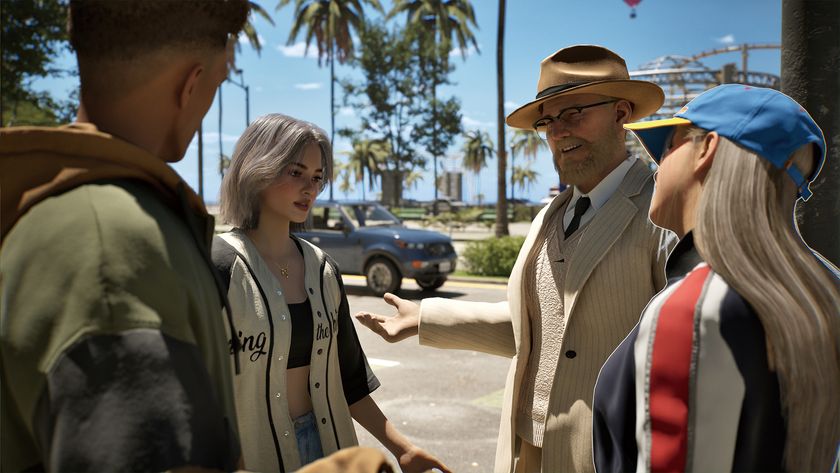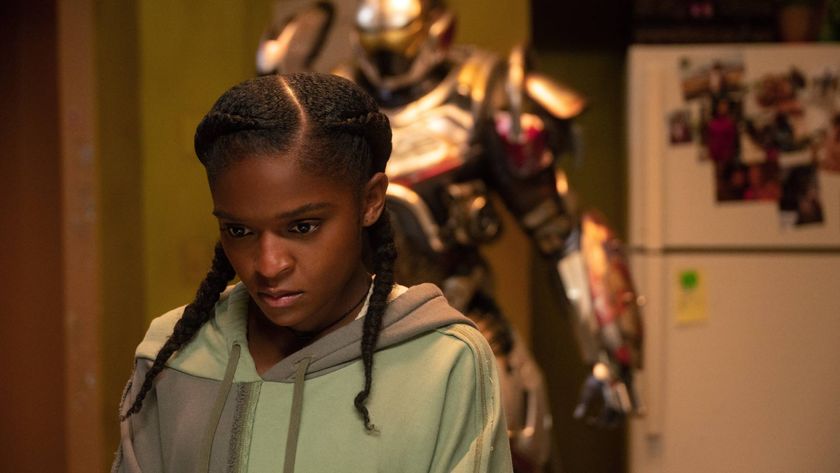How the search for truth and meaning in Outer Wilds turns a simple space adventure into a religious experience
Outer Wilds' PS4 release gives you no more excuses to pass up on 2019's micro-cosmic masterpiece
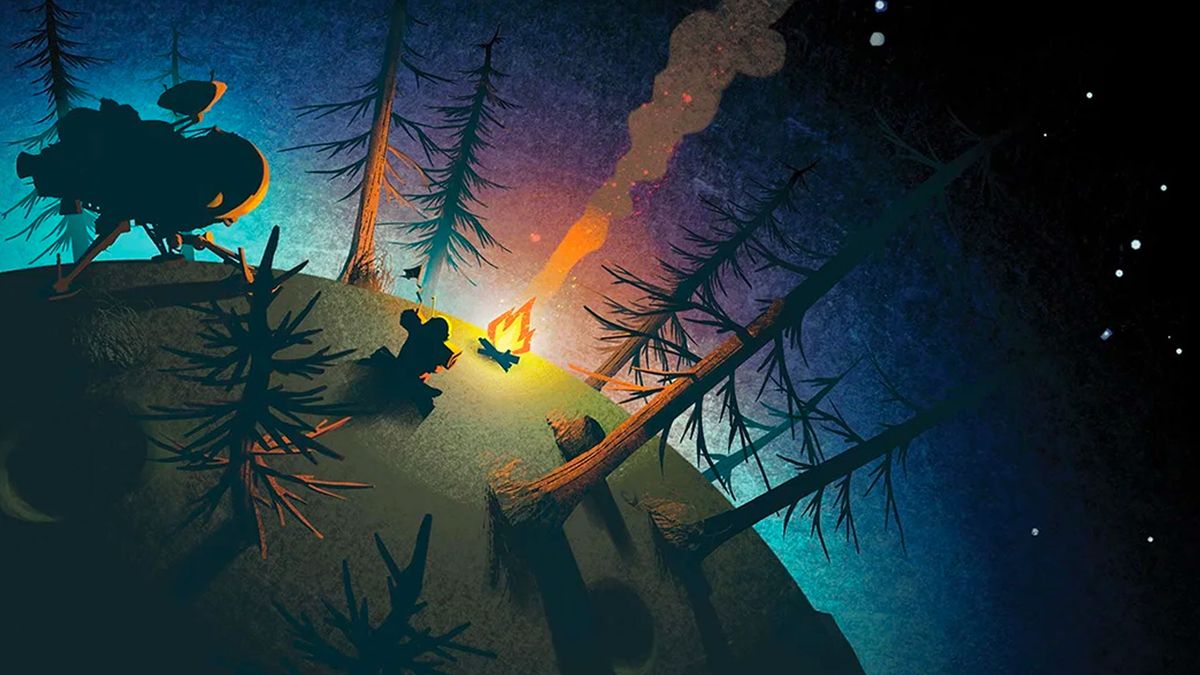
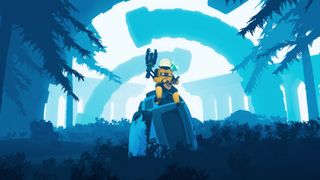
The best indie games of 2019 (and beyond)
Those who have gone through near-death experiences often describe their moments "beyond the light" not with a sense of fear or pain, but as a deeply moving event of profound and unexplainable beauty. I've never really managed to get my head around that contradiction.
Surely, all you can think about at the point of death is the life you're leaving behind, the people you're saying goodbye to, and all the small and large decisions you regret making, not to mention those that you didn't? The conscious journey from this world to whatever lies beyond strikes me as an experience of deep anguish and horror, and nothing like the oddly comforting metaphysical resonance recalled by those who have seen it for themselves, and lived to tell the tale.
But Outer Wilds has helped me to understand. It's a game, like most games, about death, but it embraces the open arms of the grim reaper like an old friend, encouraging its players to appreciate life's fragility as an opportunity to consider what it means to be mortal in the first place. There's frustration and pain in its repeated shuffles off the mortal coil, for sure, but Outer Wilds' onset of death always feels both distinctly otherworldly and intimately captivating. It's hard to explain the sensation for those who haven't played it for themselves but, then again, I suppose that's exactly what makes it such a powerful experience.
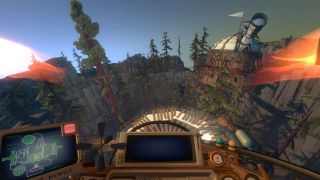
"Mobius Digital embraces the open arms of the grim reaper like an old friend"
Outer Wilds, which launched on PC and Xbox One earlier this year and comes to PS4 on October 15, slips you into the space boots of a Hearthian astronaut, the latest recruit to the woodland species' fledgling Outer Wilds Ventures space program. It's your job to explore the local galaxy, connect with other native spacefarers, and chronicle everything you find along the way, including more information about the mysterious alien race behind your very existence, the now extinct Nomai.
But here's the thing; you've apparently taken the form of this unnamed character on Groundhog Day. Every time you die, either through your own mistakes or from the inescapable death rays of a solar supernova that occurs 22 minutes in, you'll return to your starting position back on the Hearthians' home planet, ready for takeoff. Naturally, this leaves you with two main questions that'll fuel your search for information; why are you stuck in this time loop, and can you save the galaxy from its ticking time bomb of a collapsing star?
To reveal any more would be to undermine an unfurling narrative that's best enjoyed unheralded, but suffice to say these first two questions are just the start of many that you'll have to answer throughout Outer Wilds' 15-hour quest, with information representing your sole form of currency. There's no determined progression system or skill tree to upgrade your spaceship with. Instead, you'll increase your skills in navigating this universe by applying every new lesson learned about the various planets, their inhabitants, quirks, and threats, and it's here where the game's value of death manifests itself in cold, hard terms.
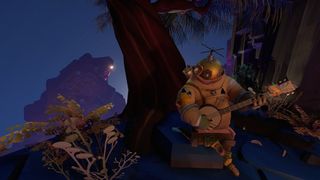
If you're careful, no self-sacrifice arrives without value, each one accompanied with another minor epiphany to inform your travels in the next time loop. It is, in a nutshell, a fatalistic exercise in all those adages about failure, surmised most succinctly by Henry Ford as "simply the opportunity to begin again, this time more intelligently."
Sign up to the 12DOVE Newsletter
Weekly digests, tales from the communities you love, and more
By the end of Outer Wilds, however, its true nature will have crept up on you without noticing. Those small questions about how to enter this door or make it past that enemy will suddenly be overshadowed by grandstanding, philosophical inquiries into fate, purpose, and agency, especially as the true nature of this clockwork solar system comes to light. But unlike the former category of questions, there's no easy answers to these difficult topics, so much so that entire philosophies have been constructed around trying to solve them.
To be clear, Outer Wilds has no intention of offering its own answers either. It merely prompts players to think and, more importantly, feel the weight of their transcendent scale. Games that deal in highfalutin theories of everything can often come across as dry or distance but, by filtering them through its beautifully humanist story, Outer Wilds imbues such heavy ideas with a palpable emotive resonance. It is by no means a game for everyone, but for those that stick with its gauntlet of recurring death traps, the rewards are quite unlike anything else you'll find in another piece of interactive entertainment this year.
For more, check out the big new games of 2019 and beyond still on the way, or watch our latest episode of Dialogue Options below.
I'm GamesRadar's Features Writer, which makes me responsible for gracing the internet with as many of my words as possible, including reviews, previews, interviews, and more. Lucky internet!
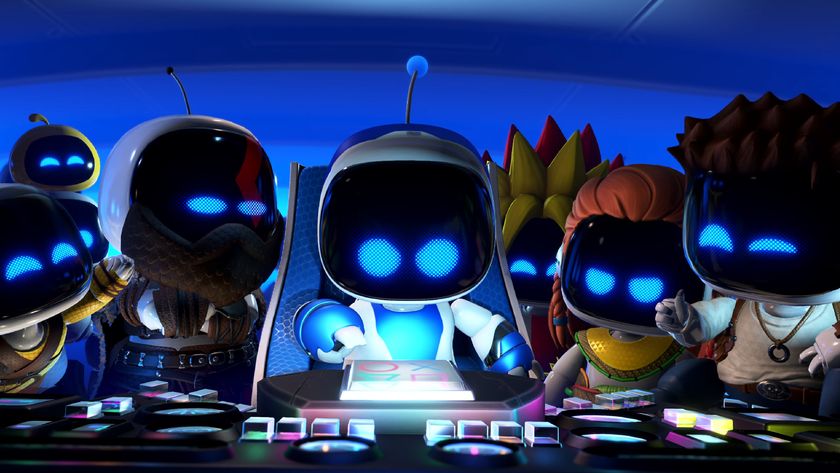
"30 years of history reside in our tape backups": PlayStation's building a game preservation mineshaft vault with 200 million files going back to a 1994 build of PS1 JRPG Arc the Lad

The other big Soulslike out this week has some Bloodborne and Dark Souls 3 in its combat, dev says, but "we would rather call AI Limit an action RPG"

